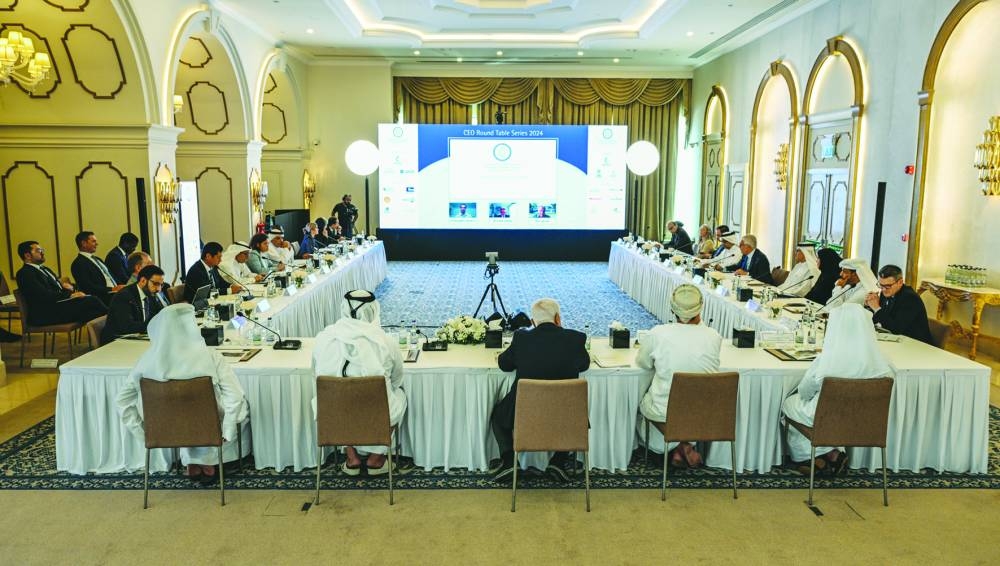The intricate relationship between water and energy was on the spotlight at the Al-Attiyah Foundation third CEO Roundtable of 2024 in Doha on Wednesday.
The event gathered top decision-makers, internationally renowned experts, and dignitaries to examine the critical interconnection between the energy transition and water resources.
The high-profile event, titled ‘The effect of the energy transition on water resources’, was moderated by broadcaster Stephen Cole.
The distinguished guest speakers were Dr Mohammed Mahmoud, Water Management and Climate Adaptation expert; Professor Gary Amy, Dean Distinguished Professor at Clemson University; Radia Sedaoui, Chief of Energy at the UN Economic & Social Commission for Western Asia (ESCWA); and Dr Albert Janssen, Principal Advisor Circular Economy at Shell.
During the roundtable, the panel highlighted that water is a crucial component in nearly all aspects of energy production, from electricity generation to fossil fuel extraction and biofuel cultivation. The energy sector accounts for approximately 10% of total global freshwater use. Conversely, energy plays a vital role in ensuring global water supply by enabling the extraction, treatment, and distribution of water.
The discussion also addressed the rising reliance on non-traditional water resources, such as desalination, due to increasing water stress. Energy used for desalination, which separates saline water into freshwater and concentrated salt, has seen global demand nearly double since 2010, with projections indicating another doubling by 2030.
Currently, 21,000 desalination plants are operating across 150 countries, with half of the global installed capacity located in the Middle East and North Africa.
In the Middle East and North Africa (Mena) region, where freshwater use per capita is among the lowest in the world, desalination remains a primary solution to water scarcity.
Countries such as Qatar, Kuwait, Bahrain, Oman, and Saudi Arabia rely heavily on desalinated water to meet daily needs, with numerous projects underway to expand capacity.
For example, Jordan is planning a major plant on the Gulf of Aqaba that will increase its desalination capacity from 4bn to 350bn litres each year – enough to supply a city of 2.5mn people.
Desalination is energy-intensive, often requiring over one kilowatt-hour per cubic metre of water treated. In 2023, energy used by desalination services in the Middle East accounted for nearly half of all energy consumed by the region's residential sector.
Speaking of the roundtable, HE Dr Ibrahim Ibrahim, Vice-Chairman of the Board of Trustees of the Al-Attiyah Foundation, expressed his gratitude for the insightful discussions, stating: “It gave me great pleasure to host this important roundtable and hear the valuable insights from our member CEOs and expert guest speakers. As the energy transition accelerates, it is crucial that we address the implications for water resources, particularly in regions like the Middle East where water scarcity is a growing concern. The intersection of energy and water security will be pivotal in shaping sustainable development in the coming decades.”
Business
Impact of energy transition on water resources on spotlight at Al-Attiyah Foundation CEO Roundtable

The event gathered top decision-makers, internationally renowned experts, and dignitaries to examine the critical interconnection between the energy transition and water resources

